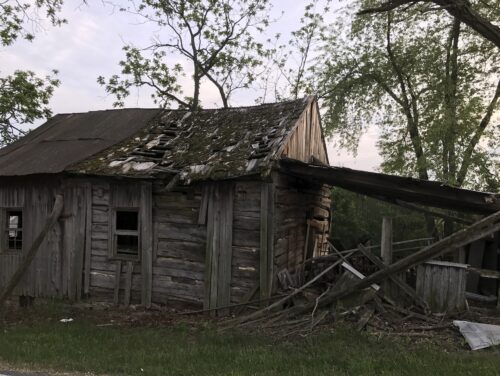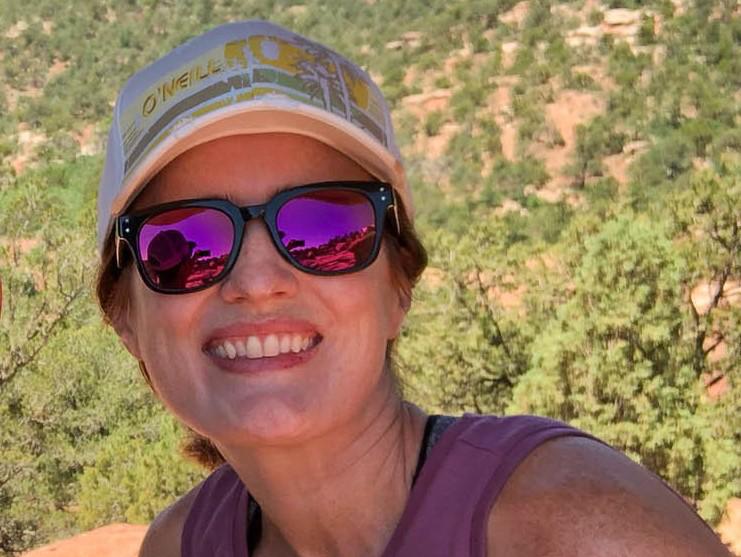by Beks
I spent my 20’s (into my 30’s if I’m honest) creating a disaster of my finances. There wasn’t a loan or credit type I didn’t like. In my 30’s, I took control because the paycheck-to-paycheck life was miserable and spent years cleaning up the mess. I’m in my 40’s now and I’ve been debt free for 4.5 years. I’m so debt averse that things smelling remotely like debt (even if they aren’t) are radically avoided. I generally stick to my budget. If I blow it, I show myself some grace and fix it over the next month or two. I’m getting pretty good at living the debt free lifestyle and sticking to it.
But it’s not enough. I need growth.
I’ve been steadily investing in retirement but it’s hard to find the motivation to save more for it. I’m behind but not to the point I’m worried. I need a boulder to push. A mountain to climb with very clear middle and end points.
As I said in an earlier post, we are renting for a year in Texas as we figure out the lay of the land. My husband and I assumed we would take the money from the sale of our home in California and pay cash or close to it for a home in Texas. I’ve been planning buying on a middle to moderately nice home. Maybe 2,500 sq ft? Maybe a nice kitchen?
But then it hit me, we live in a 1,200 sq ft home built in 1959, desperately in need of maintenance and a remodel right now. No, not great but we’ve been OK. Do I really need to DOUBLE that space?
Eh. Maybe not.
We are considering ‘downsizing’ our Texas dream house to something only slightly better than where we are now. Any extra money we can save will go to purchase a second home/condo/townhouse as a rental property. Nope, we’ve never owned a rental property and we have exactly ZERO experience. Obviously, we’d use a management company (we aren’t THAT dumb) and my husband can do any repairs on the rental himself since he’s a licensed contractor. Our goal would be to pay cash (or very close to it) for the rental. If there wasn’t a tenant, it wouldn’t put us at risk financially. On paper, it looks good…but I’ve been burned by ‘on paper’ once or twice (or a million times) in my life.
With a clear goal and a clear start and end point, I’m excited about saving again.
Thoughts?! Are we crazy? Stupid? Both?


Beks is a full-time government employee who enjoys blogging late into the night after her four kids have gone to sleep. She’s been married to Chris, her college sweetheart, for 15 years. In 2017, after 3 long years working the Dave Ramsey Baby Steps, they paid off more than $70K and became debt free. When she’s not working or blogging, she’s exploring the great outdoors.





I own a second/vacation home in a prime location. I can tell you from experience they are NOT money makers, at least not on a large scale. If you are lucky you will make some profit someday when you sell but as far as yearly income or even long term investments there are so many other better options. If you use a management company, vacation homes are even less of a money maker, than those that are self-managed so keep that in mind.
My advice is only buy a vacation home if it is something you can afford and in a place you want to go to year after year and spend lots of time there (that’s what we did – we bought for the experience and not the investment… we also paid cash and can cover the cost of upkeep). If you are buying for an investment then RUN, don’t walk, to your nearest stockbroker and find a much more sensible way to invest for your future.
If you do wish to continue with the plan to buy a vacation home for the rental income, here are some things to keep in mind from a financial standpoint.
1.) Insurance – anywhere near the coast is seeing insurance costs rising at a rapid speed, even doubling year over year in some places.
2.) Special assessments – if you are buying into a condo or HOA they have the ability to levy a special assessment at any giving time. Be sure to ask for the long term history of how often they have done this and for how much. Some communities have low monthly HOAs but cover coats by issuing regular (unpredictable) assessments. Can you cover a $10k assessment? Our community just had one that size and we are very well financially managed but sometimes circumstances require it. Also, be sure to ask how large the community reserve is. A community with a low reserve is a good sign a big assessment may be in your future. If you are not in a condo or HOA keep in mind you will have the same major expenses to plan for but it will all be on you to fund. Also, monthly HOAs can rise whenever the Board seems it is necessary.
3.) Management companies take a BIG chunk out of your profits and do not vet your renters as well as they will claim to. Expect frequent fees and damages.
4.) Renters will damage your unit. Be prepared to spend a lot of money hiring people to do the repairing or spend your entire vacation working. Emergency repairs will not be able to wait until your husband can get to the rental (assuming it is not in your same town) so those will have to be hired out.
5.) Prime rental times (i.e. the times when you will make the most profit) will be when your kids are out of school – summer break, spring break, Christmas, etc. So you will have to choose if you want to use your place or make money to cover your operating expenses.
6.) Bad weather? Good luck getting renters. Worldwide pandemic? Good luck getting renters? Economic downturn? Good luck getting renters. What will be your plan for covering expenses if you have a bad season or two? This is a very real concern that I have seen so many overlook.
Again, I am not against vacation homes. We love ours! But I never, never, never suggest buying them as a retirement investment.
SPECTACULAR advice! So much helpful information. We aren’t looking to buy a vacation home, just a traditional property to rent out to long term tenants, but the above is still super helpful!
Ah, I misunderstood and assumed you were referring to a vacation home. I also own long-term rentals in my community (I currently have 6, so a manageable amount). The numbers are much better for profit with long term rentals than vacation ren, but you really need multiples for the numbers to work well in your favor. If I can give you any advice, do not buy a single family home. Instead, look for a duplex or triplex. That way if you have a tenant move out you will still have income from the other units(s) to cover expenses.
I would still caution against using a management company as they will eat all your profit. If you self manage and get good renters you can make some profit. The real key is to get good renters who pay on time and don’t trash your property.
If you end up going this route I will be happy to offer more advice if you are interested.
Good to hear! This is great advice. We had looked at those as well since a friend suggested the same. Obviously a higher price tag on those but lower risk factor. I’ll definitely be reaching out for more info! We’re still about a year away so when we get closer I will!
This is a personal decision, but what are your plans for your kids educations? If you feel like your retirement, emergency savings, all those boxes are checked, I’d start a savings account for your kids’ futures. Whether education or a small nest egg for starting out, it’s a huge gift to give them.
That’s a great idea. We have started on that but we could always do better!
Would flipping houses be a better investment for you since your husband can do a lot of the work himself?
Just a thought!
We considered that as well since my husband is so good at construction. Since he’s ‘flipping’ ours right now, we’ll see how he likes it.
My comment is in line with the challenge Hope is facing – retirement. Rather than take on another property that will require time, money, energy, and potential income loss, look at some alternatives that can amplify the life you have now and going forward. Having enough money in retirement funds gives you many, many more choices. And those can be enjoyed all along that path. You can always go visit places you’d like to experience for longer than a regular yearly vacation. Remember, you cannot take out a loan for retirement.
Perhaps, to bulk up that savings, you can downsize your life a bit while in Texas. Yes, maybe you don’t really need the much larger house. After all, hopefully, your kids aren’t going to be living with you forever. Eventually they’ll be gone, and you’re left spending time taking care of a big house. Your family seems to enjoy experiences more than stuff. Use that as your guide.
Being able to provide some financial resources for your kids (education, training, house or car down payment) can go a very long way to setting them on a strong financial path. Let them know that dreams are possible! Show them the example of how *you* have truly prepared your own financial lives for security and well-being. That will be an even bigger gift to them. My parents did, and I’m sincerely grateful.
Great perspective!